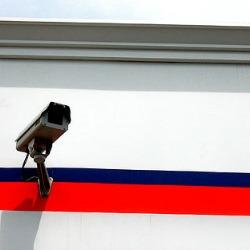BROOKE GLADSTONE: In the ongoing debate over privacy, there's a common refrain that one side loves to repeat: “If you've got nothing to hide, you've got nothing to fear.” The phrase was often invoked when the British government decided to install millions of public surveillance cameras across the country. And it’s not only the refrain of government organizations. In 2009, Google's then-CEO Eric Schmidt famously had this to say about your privacy, on CNBCC:
[CNBC CLIP]:
ERIC SCHMIDT: If you have something that you don't want anyone to know, maybe you shouldn’t be doing it in the first place.
[END CLIP]
BROOKE GLADSTONE: But George Washington University Law Professor Daniel Solove says that this argument misunderstands privacy entirely.
DANIEL SOLOVE: People think that privacy is just about keeping secrets, when it’s about a lot more. It’s about basic control over very important information that could have an impact on whether or not you get credit or a loan. You might receive, for instance, different pricing on certain things. At the airport, you might be subject to extra screening, and you don't know if it's random or if you’re on some list or what the reason is. Things can happen to you, based on your information. And you have no idea what data is being used, why and how. And you have very little recourse to do anything about it.
BROOKE GLADSTONE: Okay, but what about the classic and persuasive rejoinder that it protects us?
DANIEL SOLOVE: I hear this argument a lot: Any security measure that’s privacy-invasive must be really good. And I don't think that's true. One example is the random searches in the New York subway. Out of about 2 million daily riders, they searched a handful of people. This program was an amazing waste of money and time that was largely symbolic. There's a term that Bruce Schneier, a famous security expert, uses called security theater.
BROOKE GLADSTONE: Security theater?
DANIEL SOLOVE: Yes, making it look like you're doing something that's really helpful, but it's not. It often leads to policymakers and others not really putting to the test various security measures and seeing are they really effective. I don't believe in privacy at all costs, but I do believe that if people are asked to give up their privacy they better get more security in return.
BROOKE GLADSTONE: So do you think we could resolve this issue if we were more transparent about our invasions of privacy?
DANIEL SOLOVE: Yes I definitely think more transparency and letting people in the know will help. And yet, one of the challenges when it comes to data mining for terrorism, which involves trying to determine whether people are engaged in patterns of activity that look suspicious, is that when you have that greater transparency you also tip off the terrorists as to what patterns people are looking for.
BROOKE GLADSTONE: Mm-hmm.
DANIEL SOLOVE: And that’s a tension, and I'm not quite sure how you resolve this tension. There are certain patterns we don’t want to have the government using, so what if the government uses things that you might say or read? What if they use religion? What if they use race? Certain things could be put into the profile that we as a society might think is not fair and not appropriate or even prejudiced to put in the profile.
BROOKE GLADSTONE: We don't live in China or Iran, North Korea. This isn't a surveillance society. Or do you think it is a surveillance society?
DANIEL SOLOVE: This is a surveillance society. The difference between us and China is that the government there is much more totalitarian. But the tools of surveillance that they have at their disposal are the same things that our [LAUGHS] government is using.
BROOKE GLADSTONE: Really? I mean, we don't block people from getting to certain websites.
DANIEL SOLOVE: We don’t block. That’s the difference. China blocks and China censors and China arrests you in the middle of the night and you – and throws you in a prison, you know, somewhere, you know, unknown. Actually, we do that too. We just don’t do it in the same extreme way that China does. But we do have all the tools of surveillance. You know, we have drones that patrol [LAUGHS] the skies. We have tracking of the Internet. We have the NSA Surveillance Program, listening in on people's phone calls. I don't think that there’s a very high risk that our government is going to become totalitarian in the sense that China’s government is totalitarian, but what I do think is it could affect certain groups, certain types of activities. And it’s hidden. I mean, that has some totalitarian implications, but just for those people. So hey, if you're not on that list, great for you. But if you happen to be on the list, now you're in a different world.
BROOKE GLADSTONE: You said that you're not a privacy absolutist. How would you resolve this issue?
DANIEL SOLOVE: By having real balancing between privacy and security. If we understood privacy better and didn't reject it out of hand and we actually had real scrutiny over the surveillance, we could have our security and our privacy too.
BROOKE GLADSTONE: Daniel, thank you very much.
DANIEL SOLOVE: Thank you.
BROOKE GLADSTONE: Daniel Solove, law professor at George Washington University, is author Nothing to Hide: The False Tradeoff between Privacy and Security.

